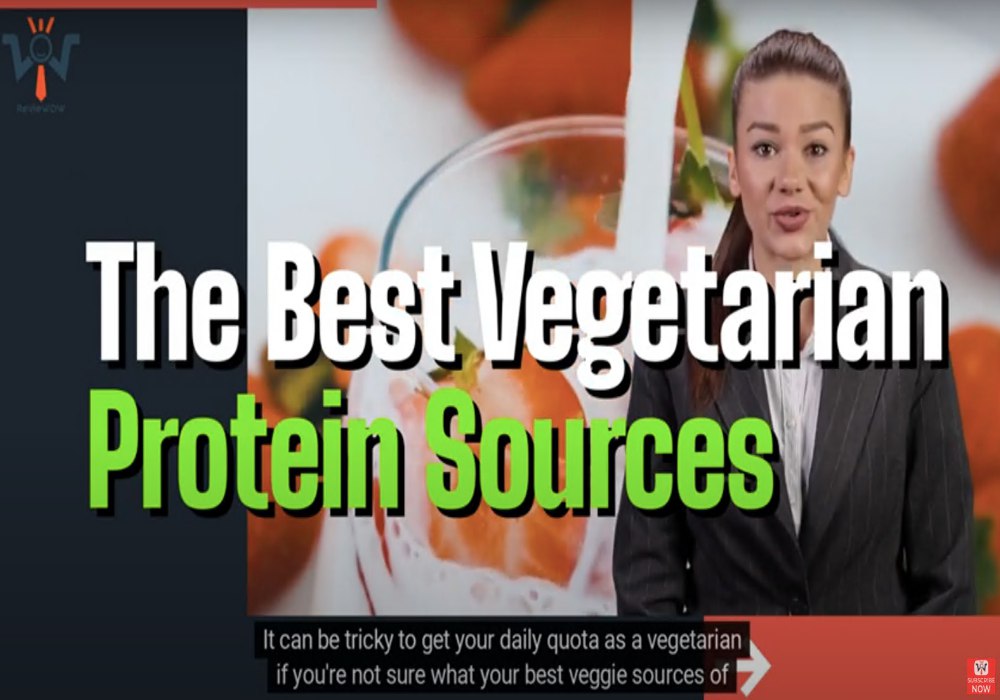Vegetarian protein : Protein is an essential component of a healthy diet. It used to be the sole obsession of bodybuilders and gym goers, but now many of us are concerned about eating enough. It can be difficult to meet your daily protein requirements as a vegetarian if you are unsure of your best veggie sources of protein-rich foods.
Content Table
Table of contents
Estimated reading time: 4 minutes
One might wonder why we require protein ?
Protein is made up of smaller units called amino acids and is required for the repair of damaged cells as well as the formation of new ones. It’s necessary for the formation of tissues, muscles, and bones, so make sure your body has enough.
How much protein do we require per day?
Adults in the United Kingdom are advised to consume 0.75g of protein for every kilogram of body weight, according to the Reference Nutrient Intake. This will change over time and will be determined by your personal circumstances. A more active person, such as a training athlete, will require more protein than someone who leads a sedentary lifestyle. On average, men should aim to consume around 55g of protein per day, while women should consume around 45g of protein per day.
What are the best vegetarian protein foods?
What are the best vegetarian high-protein foods?
If you’re avoiding certain food groups, such as meat and fish, you might think your protein options are limited, but there are plenty of ways to get your protein fix.
1 – Grains and pulses :
Lentils, pulses, and beans are excellent protein-rich pantry staples. Lentils contain approximately 9g of protein per 100g and are a filling way to bulk up soups, stews, and casseroles. Chickpeas, black beans, kidney beans, and even baked beans are excellent sources of protein. A variety of grains, such as oats, barley, rice, and quinoa, can also be used to add protein to a simple recipe. Quinoa, in particular, is an important vegetable ingredient because it is one of the few plant sources that is classified as a complete protein. This means it has all nine essential amino acids. That bowl of porridge in the morning is well worth it. 50g of milk-soaked oats contains about 15g of protein.
2 – Dairy products :
Dairy products are high in calcium and protein, both of which are essential components of a healthy diet. Cow’s milk has about 3g of protein per 100g, while cheddar cheese has about 25g of protein per 100g. If you’re concerned about saturated fat and calories, go for reduced-fat options. Vegan options include nut milks like hazelnut or almond milk, but keep in mind that store-bought versions have very low protein levels. In terms of protein content, soy milk is more comparable to dairy milk. A spoonful of Greek yogurt is also an excellent source of protein, containing approximately 6g per 100g of yogurt. Toss some fresh, natural Greek yogurt on top of your muesli, smoothie bowls, or cereal.
3 – Eggs :
Eggs are a cheap and readily available source of nutrients. A single hard-boiled egg contains about 7g of protein and makes a filling breakfast or lunch. They’re also low in calories and easily digestible. Try our protein-packed scrambled egg and feta hash.
4 – Soya and tofu :
Soy protein is a versatile ingredient that can be transformed into a variety of delectable forms. Tofu, for example, is made from soy milk curds and can be used to bulk up veggie stir-fries or salads. It comes in three different textures: silken, firm, and extra firm, and it’s another low-calorie, high-protein ingredient that’s simple to use. A 100g serving of firm tofu contains approximately 8g of protein. Soya beans can be eaten raw or cooked into soy milk, miso, or tempeh. Soya beans have about 15g of protein per 100g. Although our bodies digest plant and animal proteins differently, soya is a great veggie substitute for meat and is highly adaptable.
5 – Nuts and seeds :
Nuts and seeds are a convenient and portable source of protein and essential fats. Certain types are particularly high in protein: almonds, cashews, chia seeds, and flaxseeds are all popular protein sources. A 30g serving of almonds contains approximately 6g of protein and will keep you going through the afternoon slump.
The Review
Top Vegetarian Protein Sources
👇👇👇 Click on the link below to enter the link mentioned in the video 👇👇👇
Top Vegetarian Protein Sources DEALS
We collect information from many stores for best price available

